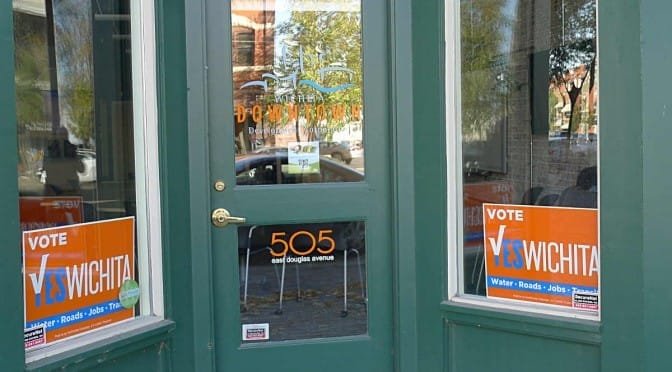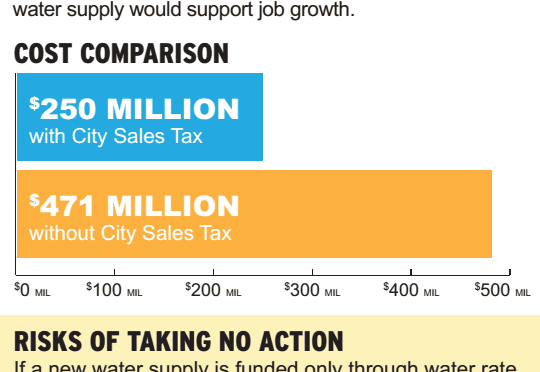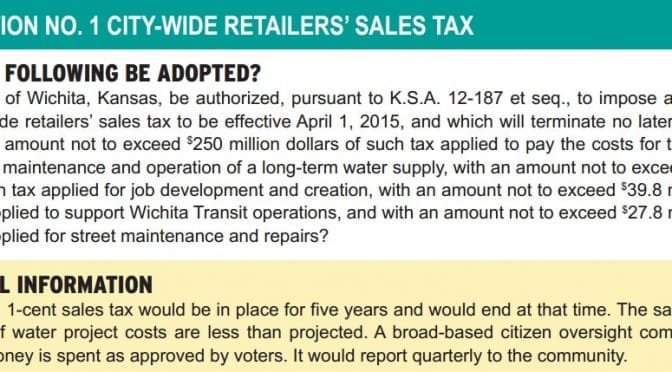Tag: Elections
-

Wichita Downtown Development Corporation campaigns for higher taxes, paid for by taxes
Campaign activity by the Wichita Downtown Development Corporation appears to be contrary to several opinions issued by Kansas Attorneys General regarding the use of public funds in elections.
-
Religion and politics; two subjects that divide friends and family members alike
If we really want to protect religious freedom in our country, then we should elect candidates who will defend the rights of all citizens to practice whichever religion they choose. That is true religious liberty, writes Eileen Umbehr.
-

Fact-checking Yes Wichita: Water pipe(s)
The “Yes Wichita” campaign group makes a Facebook post with false information to Wichita voters. Will Wichita Mayor Carl Brewer send a mailer to Wichitans warning them of this misleading information?
-

Fact-checking Yes Wichita: Tax rates
The claim that the mill levy has not been raised for a long time is commonly made by the city and “Yes Wichita” supporters. It’s useful to take a look at actual numbers to see what has happened.
-
While campaigning for higher sales tax, the Wichita Chamber president seeks an extension of his exemption from that tax
Campaigning for higher sales tax on groceries for low-income households while you ask for an extension of your company’s exemption from paying sales tax is, well, awkward.
-

Wichita Mayor Carl Brewer is concerned about misinformation
Wichita Mayor Carl Brewer is concerned about misinformation being spread regarding the proposed Wichita sales tax.
-

‘Yes Wichita’ co-chairs serve up contradicting plans for sales tax revenue
At two forums on the proposed Wichita sales tax, leaders of the “Yes Wichita” group provided contradicting visions for plans for economic development spending, and for its oversight.
-

Another Wichita sales tax forum
On Wednesday October 29 KCTU Television held a televised debate on the issue of the proposed one cent per dollar Wichita sales tax.
-

Wichita sales tax forum
The League of Women Voters — Wichita Metro held a lunchtime forum on the issue of the proposed one cent per dollar Wichita sales tax.
-
In Wichita, the public deserves and should demand answers
From Kansas Senator Michael O’Donnell, a discussion of issues surrounding the proposed Wichita one cent per dollar sales tax. O’Donnell served on the Wichita City Council for nearly two years before resigning to serve in the senate.
-

Wichita wants to expand water project, but abandons its website
As the City of Wichita recommends voters spend $250 million on the expansion of a water project, the project’s accompanying website was abandoned, and has now disappeared.
-
Proposed Wichita sales tax won’t satisfy needs, appetites
The proposed Wichita sales tax does little to address the city’s delinquent infrastructure maintenance gap. Despite this, there are rumors of another sales tax next year for quality of life items.